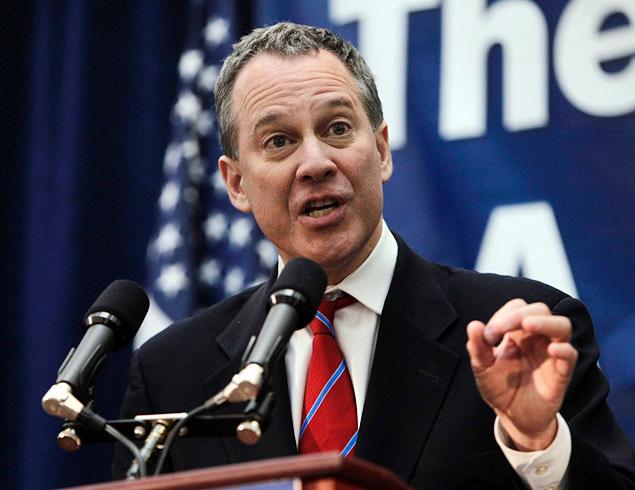The decision by the Commodity Futures Trading Commission to bring civil charges late last week against former MF Global head and Obama campaign bundler Jon Corzine raises the question of why New York’s own energetic Attorney General, Eric Schneiderman, stayed out of the fray. Schneiderman has been exceptionally active in targeting former AIG CEO Hank Greenberg, even trying (in vain) to intervene to stop a settlement between Greenberg and AIG shareholders. Why has he been so inactive in pursuing MF Global’s Corzine?
The answer may lie in Schneiderman’s aggressive pursuit of conservative tax-exempt organizations–one that seems to share the same motives of the IRS bureaucrats who targeted Tea Party organizations and other conservative groups. In 2012, in the midst of the presidential election, Schneiderman opened an investigation into the U.S. Chamber of Commerce and allied non-profit organizations. (The New York Times reported at the time, erroneously, that the IRS had taken “little action” on the issue; we now know the IRS was very active.)
Charles Gasparino, writing for the New York Post last week, noted that Schneiderman has targeted wrong-doing (real and imagined) among conservatives but has spared Democrats like Corzine. “Schneiderman, a Democrat, seems to spare no expense in attacking critics of President Obama but hasn’t lifted an investigative finger when it comes to the sleaze involving fat cats in his own party,” Gasparino wrote. Gasparino reported rumors that Schneiderman had spared Corzine in exchange for an appointment by President Barack Obama.
But the apparent bias predates Schneiderman’s tenure and extends back to the Eliot Spitzer era. As the Wall Street Journal noted in 2005, when then-Attorney General Spitzer targeted former NYSE Chairman Richard Grasso over his compensation, along with fellow NYSE board member Ken Langone, he left Democrat Carl McCall, who headed the NYSE’s compensation committee, “entirely untouched.” Spitzer also led the campaign against Greenberg, which Schneiderman has continued with enthusiasm, though with dwindling success.
The fact that Jon Corzine was not a major campaign issue in 2012 is a symptom of pervasive pro-Obama media bias, as well as the failure of Republican Mitt Romney’s campaign to turn the tables on his opponent. Yet the IRS scandal has revealed that there is more to the story of the 2012 campaign, and that a federal agency may have played a role in suppressing conservative voices. Schneiderman’s failure to pursue the case against Corzine suggests that state agencies, too, may have played a similar role–one worth investigating.

COMMENTS
Please let us know if you're having issues with commenting.